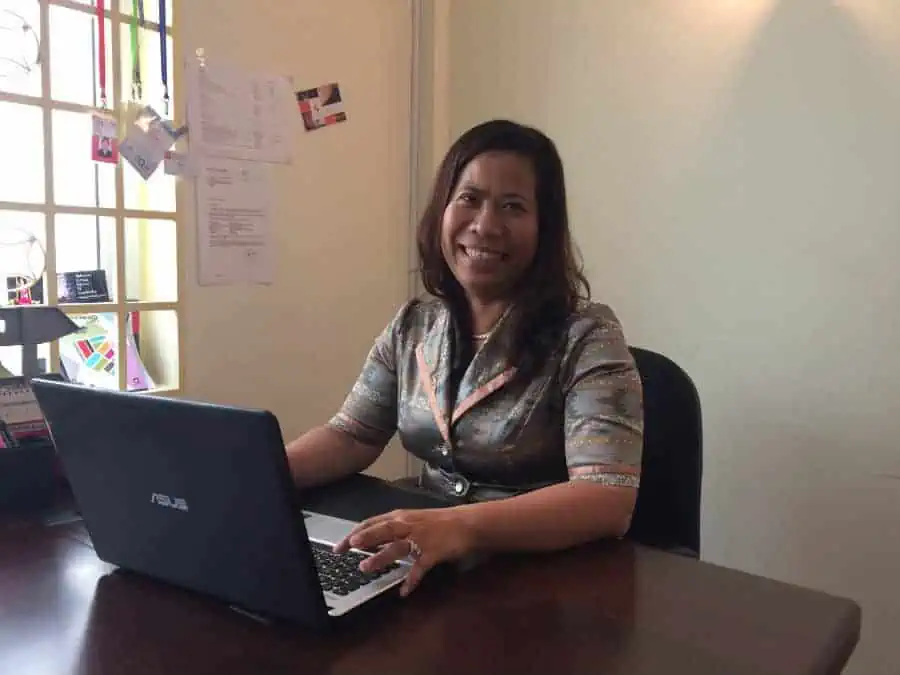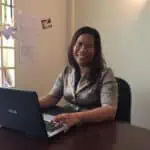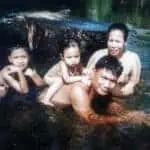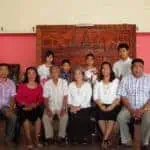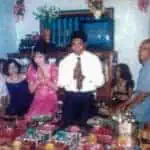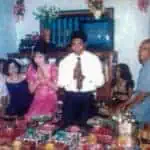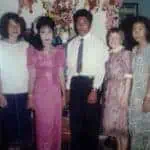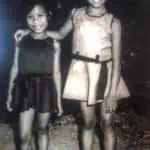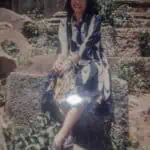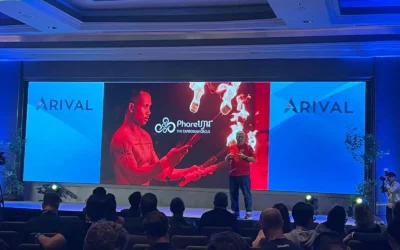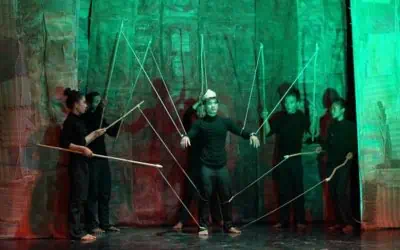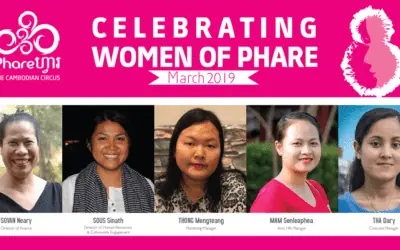Meet the Team – Neary SOVAN
By Emily Martin
Neary is head of the accounting team at Phare. She’s been working for NGO’s for a very long time, and has been with Phare, The Cambodian Circus in Siem Reap since it opened the tent in 2012!
When did you start working for Phare?
Before starting with Phare I had 20 years of experience in NGO work. I started working with NGO’s in 1992 and in the year 2007 I started working with Phare Ponleu Selpak (PPSA) in Battambang. When we opened the social enterprise project in Siem Reap I came to work here to help get it going… I wanted new things to do and new challenges.
What’s the biggest difference working for Phare the social enterprise rather than the NGO?
Phare in Siem Reap is a social enterprise and so that is a new thing to learn… compared to the NGO work, it’s a little bit different. With the NGO’s we work by using a very, very small budget which donors give us and can only do projects that are approved by those donors. Here, we are careful with our money and how we use it, but it’s our own money that we have earned. It’s a bit easier than donor dollars.
Why did you start working for NGO’s rather than other companies?
In 1992 there weren’t that many companies– more NGO’s actually!
What do you like about working for NGO’s?
The NGO’s work for the communities and to improve the social situations. It means we help the community a lot and have a good social impact. Even when I decided to work for the enterprise… it still has a social impact and gives support to the NGO School PPSA.
It’s important to me to help others. These sorts of things are developing our country and we can help – it may not be direct but I can still indirectly help the community with my finance skills.
Where did you grow up?
I have lived in Battambang my whole life until now. Before I moved to Siem Reap, I lived with my parents, even though I have two kids and a husband! Before the Pol Pot regime I was in Battambang, during the regime I was in Battambang and after the regime I have stayed in Battambang.
I like living in Battambang more than other provinces.
My family economics… we’re not rich but we’re not poor – just so-so. I have one sister and one brother. My mother was a tailor and my father was the chief of the commune. Now my father is retired and my mother just retired as well so she stays at home and looks after my children, who still live in Battambang.
My son, who is 20, just finished grade 12 at school and has made a business with my husband. My daughter is just 15. I have my own personal business as well – a candle business in Battambang.
My husband lives in Battambang – so every weekend I go back to Battambang. I work but I need to take the weekend time to spend time with my family. At least I can go at the weekend, enjoy my life with my family.
You were in Battambang during the Khmer Rouge?
Yes, as you already know the story of pol pot – we were seen as ‘equal’ to everybody, we didn’t have any rice to eat. My mum, she tried very hard… the Khmer Rouge sent me to live in a centre with other kids. We didn’t have food to eat and when I got sick we didn’t have any medicine. It was so hard like that…
My mum, husband and I try to tell our stories to my kids. Even my kids, they don’t believe at all our story. No food, no medicine, no house to sleep, no water… and we had to do something very hard for the rice fields and the gardens but the Pol Pot soldiers didn’t let us take any of that food to eat ourselves.
My children say; no it’s impossible to live like that.
Is it important to you for them to know your history?
I just want them to understand and to know that our lives were very hard and we’ve worked very hard. After the pol pot regime we didn’t have anything… no money, no clothes – just the ones we had on our backs. It’s important for them to know how we tried our best, and how my mum tried her best to take care of me and my siblings. I want to try and educate my kids not to spend much and not to take things for granted…
What is your dream for your children?
My dream for my daughter – I wish her to be a doctor, and my son, I wish him to be a business man.
What is your dream?
My dream could work for long with company on social impact and I could develop my skill, I could lean more on business skill; I could have my own big business. Me and my husband is have full happy life and happy families, to work to save the money. We both work in our jobs, me at Phare and him for the government – but we also have our own businesses like my candle business, and his rice machine business. We want to save this money to keep for our future life. We want it to be peaceful, with enough money to live, a house and a garden – that peaceful end of life.
My country has big developing as well as other country development.
What do your siblings do?
My sister works here in Siem Reap for an NGO also, she works with poor people – girls who have no jobs and no skills and she trues to provide skills and job opportunities for them.
My brother he lives in Phnom Penh, he has finished Bachelor degree of Economics Development and master degree of Development Management. He also has a good skill in Japanese language though and so he is a Japanese teacher at Nagoya University – Law Centre, Royal University of Law and Economics, Cambodia.
Our successes are really thanks to my parents. They worked hard for us to have a good education.
Has education been important in your family?
We always push the children to school and try to educated the kids and make them to understand why education is important for us. We have a saying… the money, it’s not important – only education is important. The robber cannot rob you of your education. The money, or gold the robber can take away from you, but your education and knowledge – no one can take that away.
That idea I try to teach to my kids as well.
What else is important to you?
I think an important thing for people – even you, even me – is that while we try our best to work well and get a profit for the family it’s not the most important thing. What’s more important is happiness in the family. The parents, the kids and the husband also. We have to understand each other and sometimes we need to forgive people, I hones and be responsible and helping in community.
That’s important.

